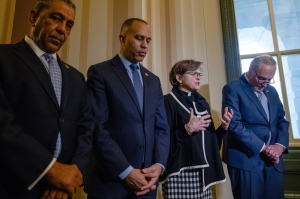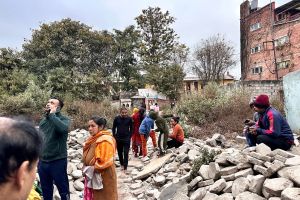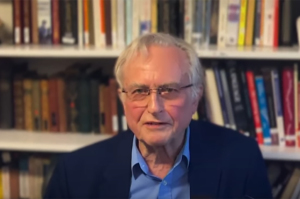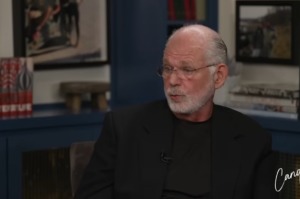China, North Korea collaborate to persecute Christians, subject them to torture, enslavement
Believers enslaved in detention facilities to make 'fake eyelashes'
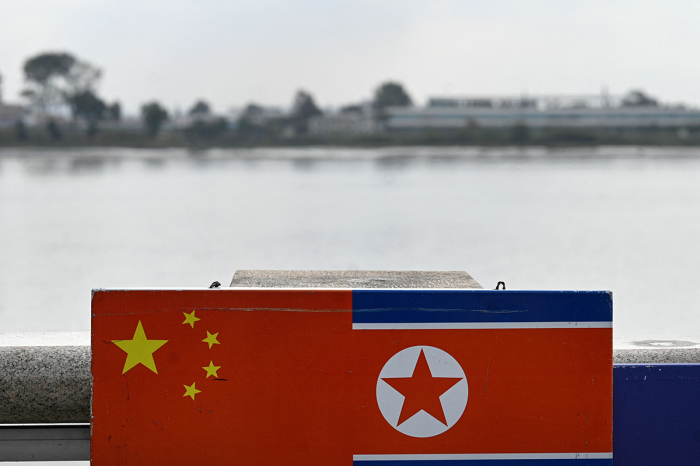
China has subjected hundreds of North Koreans to atrocities since last year by forcibly returning them to a country whose leaders hold that religion, especially Christianity, is the greatest threat to its power, experts said at a recent U.S. hearing.
Torture, sexual violence, enslavement and murder await those repatriated from China to detention centers in the North Korea of Supreme Leader Kim Jong Un, investigations have shown.
“Any religious belief, and Christianity in particular, as well as South Korea, constitute the only challenges to the Kim regime’s absolute monopoly on power,” Greg Scarlatoiu, executive director of the non-governmental Committee for Human Rights in North Korea (HRNK), said at the hearing of the U.S. Commission on Religious Freedom (USCIRF) on Sept. 26. “Christianity offers an alternative way of life that delegitimizes tyranny and transcends oppression.”
Hundreds of North Koreans have been forcibly repatriated from China since last year despite the known risks they face upon their return, said Hanna Song, executive director of the Database Center for North Korean Human Rights (NKDB), at the hearing.
“Upon returning back into North Korea, one of the first questions they will be asked by authorities is whether they have met with a missionary during their time in China,” Song said. “This question is not merely a formality. The answer determines the severity of punishment they will endure. If an individual admits to or is found to have had contact with a missionary, particularly one affiliated with Christianity, they’re often subject to the harshest forms of torture and imprisonment.”
When North Koreans are forcibly returned, they find that encounters they had with religious figures while in China can mark them for life, “turning an already dire situation into one of extreme suffering,” she said. “The international community must urgently act to address these forced repatriations and the inhumane consequences awaiting those sent to North Korea.”
Joanna Hosaniak, deputy director general of the Citizens’ Alliance for North Korean Human Rights (NKHR), told the hearing that detainees suspected of religious affiliations while in China are separated from other returnees.
“This persecution needs to be seen in a much wider context — simply put, North Korean leadership is operating a criminal enterprise which enslaves civilians to facilitate production of goods for export, through which it acquires foreign currency to fund the regime and its military programs,” Hosaniak said.
This form of enslavement happens within prisons and detention facilities operated by security forces, she said.
“China continually supplies slaves for detention facilities,” Hosaniak said. “Both political prison camps, which are operated mostly by the MSS [Ministry of State Security], and long-term prisons operated by MPS [Ministry of Public Security], are major production sites that produce goods for export: Textiles, fake eyelashes, labeled ‘Made in China.’”
Hosaniak said testimonies from refugees revealed China was using facial recognition technology to track down migrants in China, and that officials rewarded those who report people aiding them. Chinese authorities share North Korea’s desire to punish those of religious belief, she said, saying that if Chinese officials were merely arresting illegal migrants, they wouldn’t also interrogate them about whom they met and whether they’re trying to escape.
“The goal is religious persecution,” she said, adding that Chinese companies cooperate in this task in a way that is tantamount to human trafficking, and that there is evidence that some Chinese companies are linked with North Korean companies.
Scarlatoiu noted that denial of human rights, indoctrination, information control, and the regime’s “apocalyptic weapons program” take priority over the human rights, welfare and human security of its citizens.
“The Kim family regime is a criminal organization masquerading as a sovereign state,” he said. “This is a regime that holds [an] absolute monopoly on political power through oppression unparalleled in the contemporary world.”
Despite life-threatening dangers, overwhelming coercion, extensive surveillance and severe punishment, churches have been growing in North Korea with the help of outside missionaries and churches, he added.
Human rights must have a greater role in U.S. policy due to the connection between rights violations and the regime’s threat to the wider world, he said.
“The very nature of the regime armed with nuclear weapons that commits crimes against humanity is a threat to regional and international peace and security,” Scarlatoiu said. “There is a direct connection between North Korea’s human rights violations and the threats it poses to international peace and security, and thus the human rights security nexus must be emphasized.”
Song of the NKDB told the commission that 99.6% of North Korean refugees say they are not aware of any religion being practiced within the country. As the regime puts three family generations into prison if even one relative is convicted of “treason” for practicing their faith, the resultant self-silencing means grandchildren do not know that their grandparents were Christians descended from generations of believers.
Song said the regime uses all measures possible to frame “crimes” of personal conscience as anti-state or treason. In the HRNK’s submission for the U.N. Human Rights Council’s Universal Periodic Review of North Korea in April, the committee found that an estimated 160,000 people were detained in political prisons for “political crimes” as of 2020.
An inquiry by an international commission of judges found that prisoners were subject to “murder, extermination, enslavement, forcible transfer, imprisonment or severe deprivation of physical liberty, torture, sexual violence, persecution, enforced disappearance and other inhumane acts,” according to the HRNK submission.
“Extensive evidence demonstrated that DPRK [Democratic People’s Republic of Korea] officials detain individuals for illegitimate reasons, such as exercising basic human rights,” it added.
Asked by USCIRF Commissioner Meir Soloveichik how prisoners could be helped, a legal analyst for the Transitional Justice Working Group (TJWG), Ethan Shin, told the commission that advocacy can lead to better treatment. Hosaniak of the NKHR noted that when the names of prisoners are known — a rare and difficult achievement — international advocacy has led to better conditions that allowed some detainees to survive.
Scarlatoiu added that government, non-governmental organizations and religious groups are now working better together on behalf of detainees.
North Korea was ranked No. 1 on Open Doors’ 2024 World Watch List of the countries where it is most difficult to be a Christian.
Originally published at Christian Daily International
Christian Daily International provides biblical, factual and personal news, stories and perspectives from every region, focusing on religious freedom, holistic mission and other issues relevant for the global Church today.
















